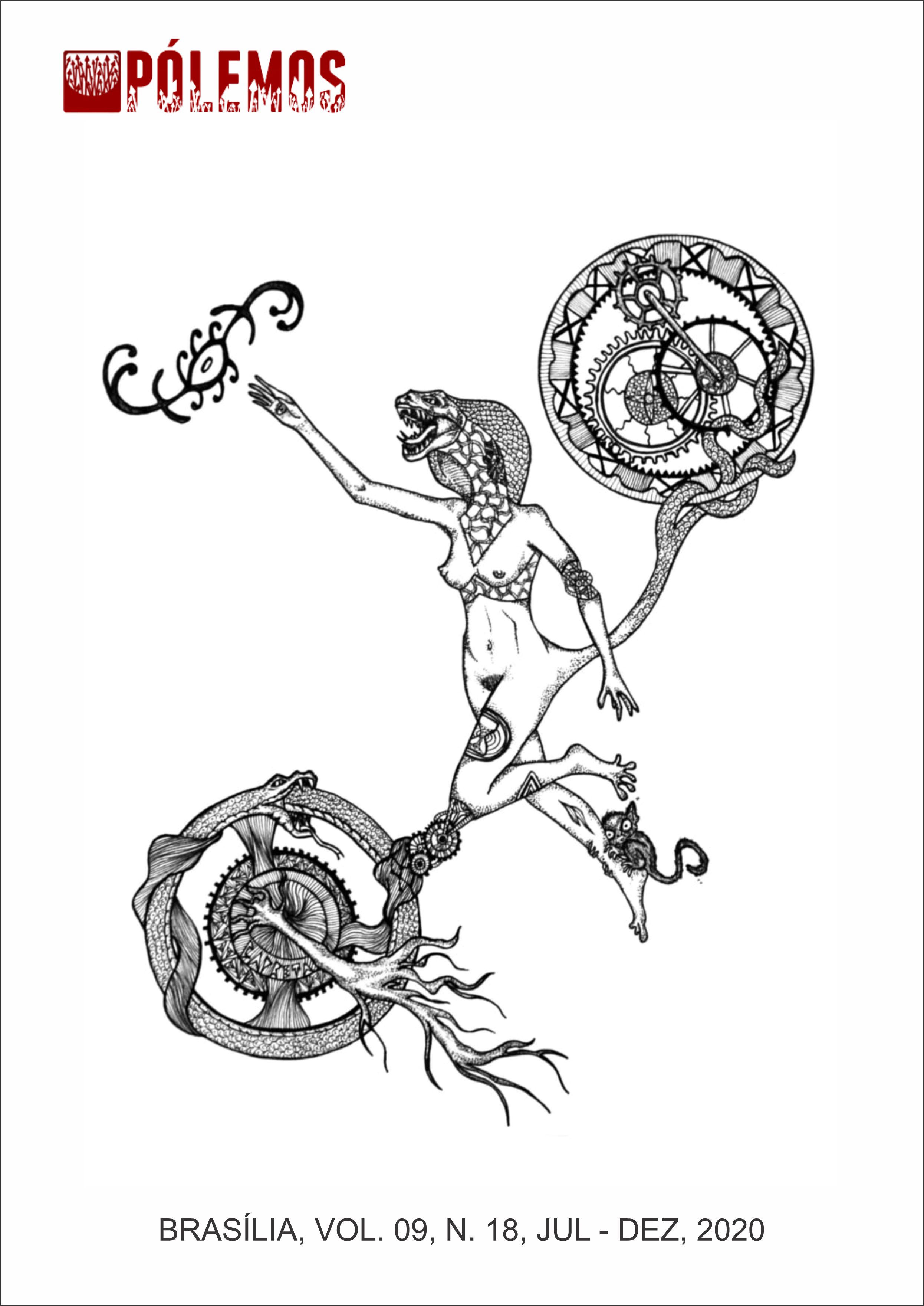THE SYNTHETIC A PRIORI JUDGEMENTS IN THE KANT’S CRITIQUE OF PURE REASON
knowledge and metaphysical implications
DOI:
https://doi.org/10.26512/pl.v9i18.30153Keywords:
Synthetic. A priori. Science. Knowledge. Metaphysics.Abstract
This article aims to make a general explanation about the synthetic a priori judgments in the Critique of Pure Reason, as well as demonstrate your relationship with the scientific knowledge and the metaphysical implications of this concept. For this, should be analyzed the basic notions for the formulation of synthetic a priori judgment, seen by Kant as the central axis of the general problem of the pure reason. From this, the article asks what are the implications of the syntheticity a priori for objects how God, world and soul as well as if the Kant’s philosophical work can be seen how metaphysics. Thus, it is concluded that Kant describes the scientific judgments and extend them to the metaphysics, excluding the speculative knowledge of the objects quoted above and formulating a metaphysics of nature that underlies the possibility conditions of the synthetic a priori judgments.
Downloads
References
CALVINO, João. A Instituição da Religião Cristã: tomo II, livros III e IV. São Paulo: Editora UNESP, 2009.
CASSIRER, Ernst. El Problema del Conocimiento, v. 2. Tradução de Wenceslau Roges. 4° Edição. Cidade do México: Fondo de Cultura Economica, 1993.
__________________. Filosofia das Formas Simbólicas III: fenomenologia do conhecimento. Tradução de Eurices Avance de Souza. São Paulo: Martins Fontes, 2011.
FILHO, Raul Landim. Kant: predicação e existência. Analytica, Rio de Janeiro, v. 9, n. 1, p. 185-198, 2005.
FREGE, Gottlob. Os fundamentos da aritmética. Tradução de Luís Henrique dos Santos. 2º Edição. São Paulo: Abril Cultural, 1980.
HÖFFE, Otfried. Immanuel Kant. Barcelona: Editorial Herdes, 1986.
KANT, Immanuel. Crítica da Razão Pura. Tradução de Valério Rohden e Udo Baldur Moosburger. 2º Edição. São Paulo: Abril Cultural, 1983.
___________________. Crítica da Razão Pura. Tradução de Fernando Costa Mattos. Petrópolis: Vozes, 2012.
___________________. Prolegômenos a toda metafísica futura. Tradução de Artur Morão. Lisboa: Edições 70, 1988.
KAUFMAN, Gordon. God the problem. Cambridge: Harvard University Press, 1972.
LOPARIC, Zeljko. As Duas Metafísicas de Kant. Kant e-Prints, Campinas, v.2, n.5, p. 1-10, 2003. Disponível em: https://www.cle.unicamp.br/eprints/index.php/kant-e-prints/article/view/315. Acesso em: 10 mar. 2020.
_________________. Os problemas da razão pura e a semântica transcendental. Dois Pontos, Curitiba, v. 2, n. 2, p. 113-128, 2005.
NEWTON, Isaac.The principia: mathematical principles of natural philosophy. Tradução I. B. Cohen e A. Whitman. Berkeley: University of California Press, 1999 [1687].
PLANTINGA, Alvin. Crença Cristã Avalizada. Tradução de Desidério Murcho. São Paulo: Vida Nova, 2018.
PEREZ, Daniel Omar. A Relação entre Teoria do Juízo e Natureza Humana em Kant. Educação e Filosofia, Uberlândia, v. 27, n. especial, p. 233-258, 2013.
ROUANET, Luiz Paulo. A Filosofia da Natureza de Kant. Kant e-Prints, Campinas, v.5, n. 1, p.1-13, 2010. Disponível em: https://www.cle.unicamp.br/eprints/index.php/kant-e-prints/article/view/379. Acesso em: 02 mar. 2020.
SALA, Giovani B., NEVES, Jorge. A questão de Deus nos escritos de Kant. Revista Portuguesa de Filosofia, Braga, v. 49, n. 4, p. 537-569, 1993. Disponível em: https:// www.jstor.org/stable/40337056. Acesso em: 12 mar. 2020.
SCHÜTZ, Rosalvo. A concepção multifacetada da natureza em Kant. Veritas, Porto Alegre, v. 64, n. 1, p. 238-256, 2009.
Downloads
Published
Issue
Section
License
Copyright (c) 2020 PÓLEMOS ”“ Revista de Estudantes de Filosofia da Universidade de Brasília

This work is licensed under a Creative Commons Attribution-NonCommercial-NoDerivatives 4.0 International License.
Todos os trabalhos que forem aceitos para publicação, após o devido processo avaliativo, serão publicados sob uma licença Creative Commons, na modalidade Attribution-NonCommercial-NoDerivatives 4.0 International Public License (CC BY-NC-ND 4.0). Esta licença permite que qualquer pessoa copie e distribua a obra total e derivadas criadas a partir dela, desde que seja dado crédito (atribuição) ao autor / Ã autora / aos autores / às autoras.


